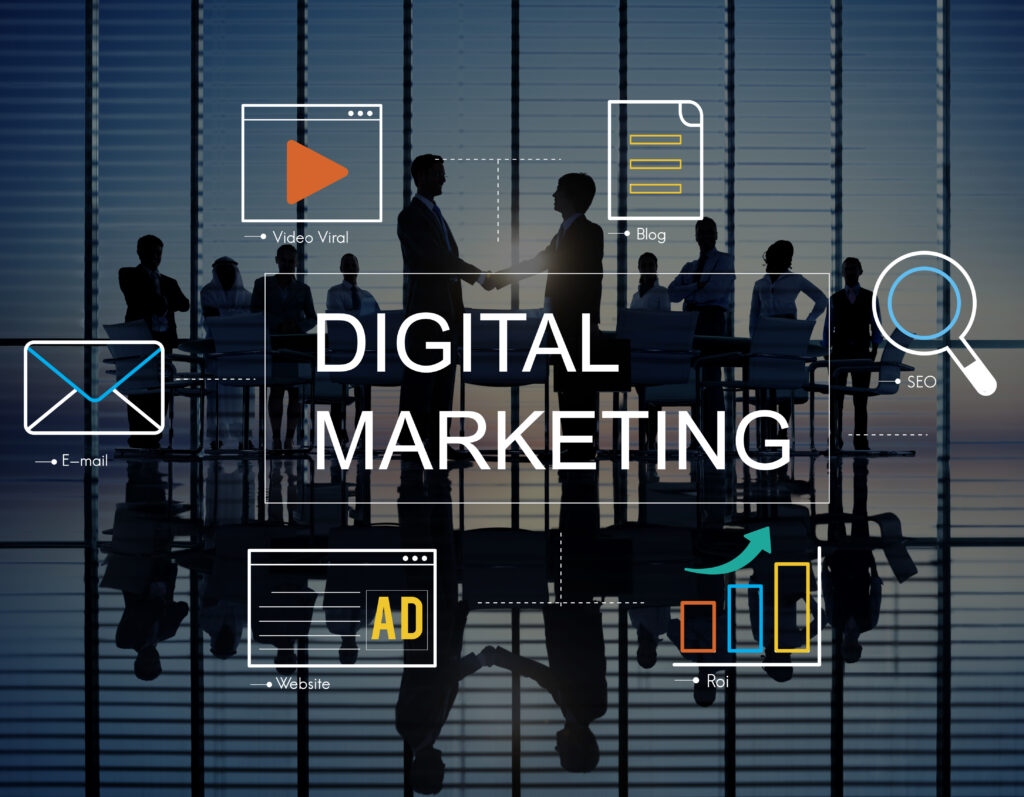
In today’s rapidly evolving business landscape, digital marketing has emerged as an indispensable tool for companies of all sizes. The advent of the internet and the proliferation of digital devices have fundamentally transformed the way businesses interact with their customers. This blog post aims to delve into the importance of digital marketing, exploring its various facets, benefits, and the reasons why it has become a cornerstone of modern business strategy.
Table of Contents
Introduction
Digital marketing is no longer an optional strategy for businesses; it is a necessity. With billions of people using the internet every day, the digital realm offers a vast and diverse audience that businesses can tap into. This blog post will explore why digital marketing is crucial, how it benefits businesses, and the strategies that can help maximize its potential.
Understanding Digital Marketing
Definition and Scope
Digital marketing refers to the use of digital channels, platforms, and technologies to promote products and services. Unlike traditional marketing, which relies on physical media such as print ads, billboards, and television, digital marketing leverages the internet and electronic devices to reach and engage with customers.
Key Components
Digital marketing encompasses a wide range of activities and strategies, including but not limited to:
- Search Engine Optimization (SEO)
- Content Marketing
- Social Media Marketing
- Email Marketing
- Pay-Per-Click Advertising (PPC)
- Affiliate Marketing
- Online Public Relations
- Influencer Marketing
The Evolution of Marketing
Marketing has come a long way from its early days of simple advertisements in newspapers and word-of-mouth promotions. The rise of the internet in the late 20th century marked a significant shift in how businesses approached marketing. Traditional marketing methods started to lose their effectiveness as more people began spending time online.
The digital age brought with it new opportunities and challenges. Businesses that adapted to this change by incorporating digital marketing strategies thrived, while those that clung to outdated methods struggled to keep up. The evolution of marketing is a testament to the importance of digital marketing in today’s business environment.
The Importance of Digital Marketing
Increased Reach
One of the most significant advantages of digital marketing is its ability to reach a global audience. Unlike traditional marketing, which is often limited by geographical boundaries, digital marketing can target customers anywhere in the world. This increased reach opens up new markets and opportunities for businesses to grow and expand.
Cost-Effectiveness
Digital marketing is often more cost-effective than traditional marketing. With digital channels, businesses can reach a larger audience at a fraction of the cost of traditional methods. For example, social media platforms and email campaigns can deliver targeted messages to thousands of potential customers without the high costs associated with print or television advertising.
Enhanced Engagement
Digital marketing allows for more interactive and engaging customer experiences. Social media platforms, in particular, enable businesses to connect with customers in real time, fostering a sense of community and loyalty. Interactive content such as videos, quizzes, and polls can also enhance engagement and encourage customers to spend more time with a brand.
Data-Driven Decision Making
One of the most powerful aspects of digital marketing is the ability to collect and analyze data. Businesses can track customer behavior, preferences, and interactions across various digital channels. This data provides valuable insights that can inform marketing strategies, improve customer experiences, and drive business growth.
Key Digital Marketing Strategies
Search Engine Optimization (SEO)
SEO is the practice of optimizing a website to rank higher in search engine results pages (SERPs). By improving the visibility of a website, businesses can attract more organic traffic and increase their chances of converting visitors into customers. SEO involves various techniques, including keyword research, on-page optimization, and link building.
Content Marketing
Content marketing focuses on creating and distributing valuable, relevant, and consistent content to attract and retain a clearly defined audience. This strategy aims to provide information that meets the needs of potential customers, establishing the business as a trusted authority in its industry. Blog posts, articles, videos, and infographics are common forms of content marketing.
Social Media Marketing
Social media platforms such as Facebook, Twitter, Instagram, and LinkedIn offer businesses a unique opportunity to connect with their audience. Social media marketing involves creating and sharing content on these platforms to build brand awareness, drive engagement, and generate leads. It also allows businesses to interact with customers and respond to their feedback in real time.
Email Marketing
Email marketing remains one of the most effective digital marketing strategies. By sending personalized and targeted emails, businesses can nurture relationships with their customers, promote products and services, and drive sales. Email marketing campaigns can be automated and segmented to ensure that the right message reaches the right audience at the right time.
Pay-Per-Click Advertising (PPC)
PPC advertising involves placing ads on search engines and other digital platforms and paying a fee each time the ad is clicked. This strategy can drive immediate traffic to a website and is particularly effective for promoting time-sensitive offers or targeting specific keywords. Google Ads is one of the most popular PPC platforms, allowing businesses to bid on keywords and display ads to users searching for those terms.
Challenges in Digital Marketing
Adapting to Changing Algorithms
One of the biggest challenges in digital marketing is keeping up with constantly changing algorithms. Search engines and social media platforms frequently update their algorithms to improve user experience and combat spam. These changes can impact the visibility and effectiveness of digital marketing campaigns, requiring businesses to stay agile and adapt their strategies accordingly.
Managing Online Reputation
In the digital age, a business’s reputation can be significantly influenced by online reviews, social media comments, and other user-generated content. Managing online reputation involves monitoring what is being said about the business, responding to feedback, and addressing any negative comments or reviews. This can be a time-consuming task but is essential for maintaining a positive brand image.
Ensuring Data Privacy and Security
As businesses collect and analyze more customer data, ensuring data privacy and security has become increasingly important. Businesses must comply with regulations such as the General Data Protection Regulation (GDPR) and implement robust security measures to protect customer information. Failure to do so can result in significant legal and financial consequences.
The Future of Digital Marketing
The landscape of digital marketing is constantly evolving, driven by technological advancements and changing consumer behaviors. Emerging technologies such as artificial intelligence (AI), machine learning, and virtual reality (VR) are set to transform the way businesses approach digital marketing.
AI and machine learning can enhance personalization and automation, allowing businesses to deliver more relevant and timely messages to their customers. VR can provide immersive experiences that engage customers in new and exciting ways. As these technologies continue to develop, businesses that embrace innovation and adapt to new trends will be better positioned to succeed in the digital age.
Conclusion
The importance of digital marketing cannot be overstated. In a world where the internet and digital devices are integral to daily life, businesses must leverage digital marketing strategies to reach and engage with their audience. By understanding the benefits and challenges of digital marketing, businesses can develop effective strategies that drive growth and success.
As digital marketing continues to evolve, staying informed about the latest trends and best practices is crucial. Whether you are a small business owner or a marketing professional, investing in digital marketing is essential for staying competitive and achieving long-term success.



